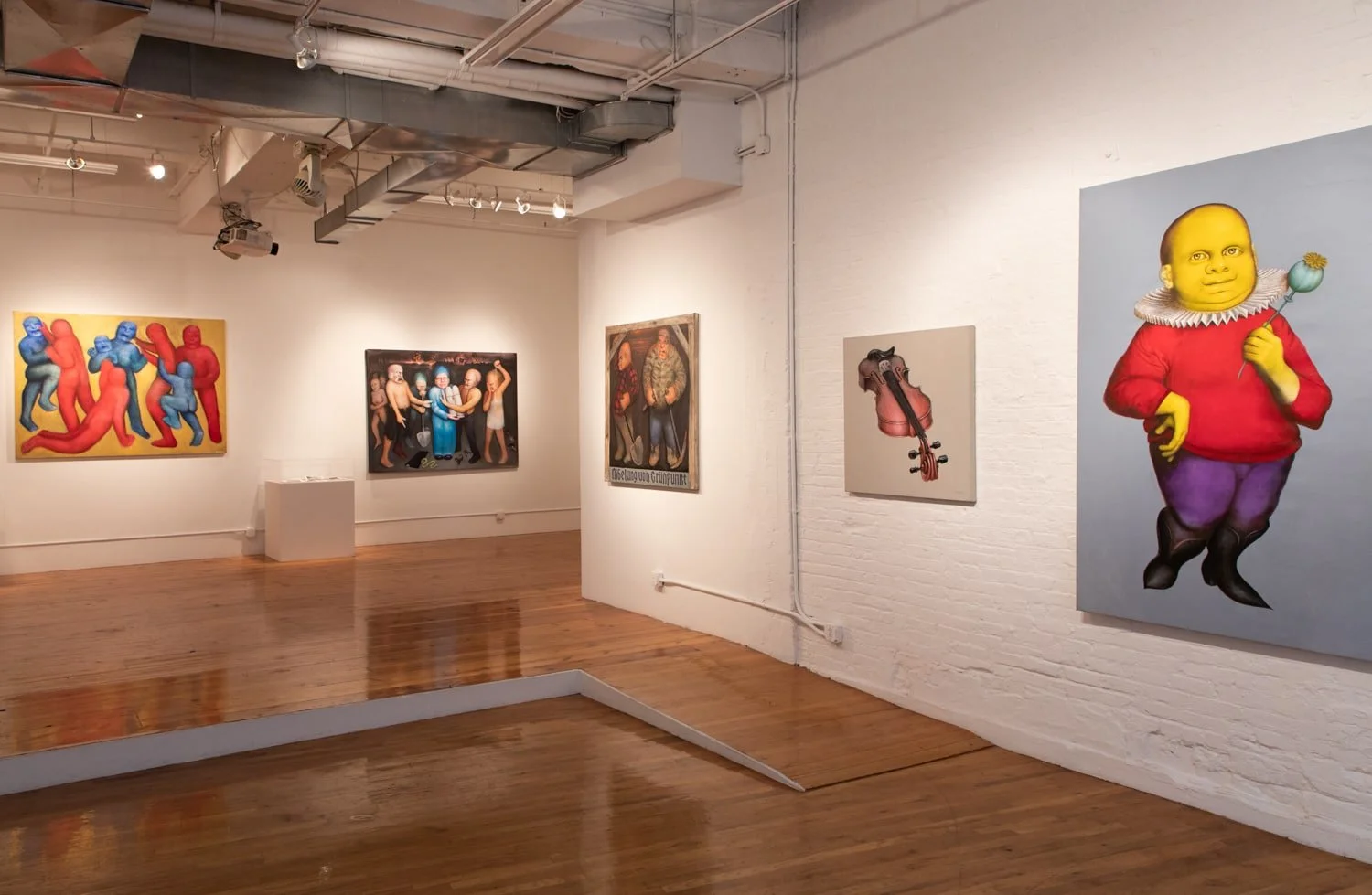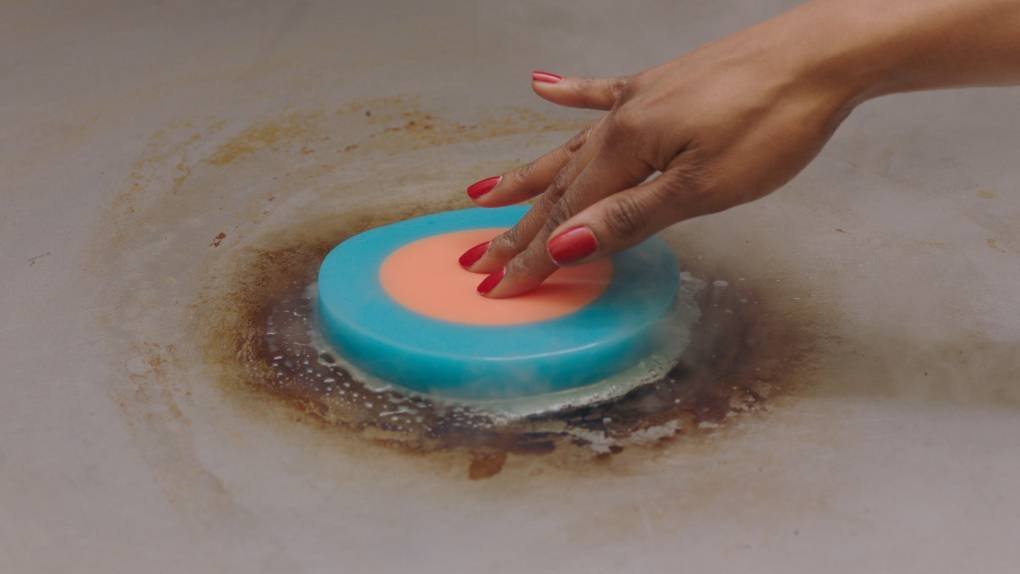Close-up lighting pass on the character, exploring how subtle light reads on skin.
Liminal by Pierre Huyghe (2024)
Overview
I worked on Liminal, a real-time installation by Pierre Huyghe. My focus was on placing and animating cameras, lighting the abyss-like environment, and shaping the atmosphere around the central character. The project was about turning a constantly evolving, generative system into something cinematic and emotionally resonant, guiding the viewer’s eye through framing, rhythm, and light.
Roles / Tools
Camera placement and animation
Environment and character lighting
Unreal Engine 5
Challenge
The challenge was to create a cinematic experience in an environment that was unpredictable and always changing. Every decision with framing, movement, and light needed to hold up no matter what the system generated.
Process
Placed and animated cameras to establish rhythm and guide the viewer’s eye
Designed lighting to capture the abyss-like quality of the environment and highlight the central character
Coordinated with team members across multiple continents, ensuring clear communication and consistent alignment on artistic and technical goals
Balanced performance and visual fidelity while iterating with the broader creative and technical team
Deliverables
Camera passes and lighting setups integrated into the real-time build
Optimized assets for use in Unreal Engine 5 pipeline
What I learned
I learned how subtle changes in lighting can completely shift the atmosphere of a scene, and especially how light reads across skin to give presence to a digital character. I also saw how even the smallest camera movements, like a slight shift in framing or timing, can dramatically change the way the viewer experiences the work. This project deepened my appreciation for the precision of cinematic tools in shaping immersive environments.
Camera test exploring depth and texture in the abyss-like environment, where small shifts in light and shadow dramatically change the mood.
Exhibition view from Low Fidelity, featuring Bobby Grossman’s photographs of New York’s punk scene and the trailblazing artists and musicians of the 70s, 80s, and 90s.
Installation view of Walter Steding’s portraits and allegorical paintings, works that move beyond representation into poetic and unseen worlds.
Howl Arts: Exhibitions & Digital Campaigns (2019–2023)
Overview
I spent four years at Howl Arts, a gallery and nonprofit in New York City. I started as Digital Content Manager and eventually became Director of Programming for exhibitions, events, talks, and digital content. This long-term role let me collaborate deeply with artists and the community, while building out campaigns and programs that expanded the organization’s reach.
Roles / Tools
Curating and producing exhibitions
Programming events, talks, and performances
Directing digital campaigns and content strategy
Adobe Creative Suite, production scheduling tools
Challenge
Howl Arts operated as both a gallery and a performance venue, which meant every exhibition had to adapt to a space that was constantly shifting between talks, concerts, and community events. The organization worked with artists across disciplines, many of them experimental, so each project came with unique production needs that pushed the limits of what was logistically possible. At the same time, Howl Arts wanted to create a lasting digital archive of downtown culture, documenting performances and conversations so they could live on beyond the gallery walls. Balancing ambitious creative visions with the practical realities of space, safety, and documentation was at the core of every project.
Process
Curated exhibitions in collaboration with artists and designers
Produced public programming including talks, screenings, and performances
Directed digital campaigns across social, web, and email to amplify exhibitions and measure impact
Managed schedules, budgets, and production workflows across multiple projects
Worked with internal staff and external vendors to deliver seamless experiences from conception through installation
Deliverables
Exhibition schedules, installation documentation, and vendor coordination
Digital campaign assets and performance analytics
Public programming lineups and promotional materials
What I Learned
I learned how curatorial choices, exhibition design, and programming can transform the way people encounter art. Even the smallest details in timing, layout, and communication had a major impact on how audiences engaged with the work. This experience showed me how programming, digital content, and live events all come together to build a cohesive story and how subtle adjustments can make a huge difference in how a community responds.
After Effects compositing pass, where small color tweaks shaped the final look.
Prop detail created for the shoot, designed to read clearly on camera.
Spaghetti Blockchain by Mika Rottenberg (2019)
Overview
I worked with Mika Rottenberg on her film and installation Spaghetti Blockchain, which premiered at the New Museum in New York City. My contributions included on-set production support, prop-making, and logistics, followed by VFX finishing in After Effects and editing support in Premiere Pro.
Roles / Tools
On-set production support: props, logistics, and day-to-day coordination
VFX finishing and compositing in After Effects
Editing and deliverables in Premiere Pro
Challenge
The challenge was to support a major museum premiere that demanded detail and precision at every stage — from prop textures built for camera to high-resolution deliverables formatted for gallery playback with surround sound.
Process
Assisted on set with prop-making, logistics, and production coordination
Completed compositing, color passes, and finishing in After Effects
Helped prepare editing and formatting deliverables in Premiere Pro for installation playback
Worked closely with the artist’s team to maintain visual coherence and meet the New Museum’s technical requirements
Deliverables
Final 4K masters and VFX composites
Installation-ready deliverables, including 7.1 surround sound formatting
What I Learned
I learned how important fine details are in both production and post. On set, small choices in props and textures shaped how the camera picked up the scene. In post, minor adjustments in color and compositing had an outsized effect on the final projection. This project taught me to pay attention to the smallest layers of production because they accumulate into the immersive quality of an installation.






